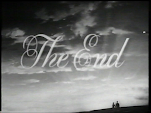Tuesday, 14 April 2015
Irony and Reason
"On the one hand, one wants to say that Western reason has been used to domesticate, subordinate and tyrannise its others, but such a judgement also employs the very sense of reason and properly universal justice it would deny." (Claire Colebrook, Irony 2004: 165)
One potential response to this state of affairs is to abandon, or consider somehow tainted, the activity of critiquing tryanny and the accompanying need to fight for a more just world, since one cannot do so without recourse to concepts and values about which one is suspicious. This route, sometimes favoured by critical theory, has the ring of radicalism, but it is also comforting, since it effectively relieves one of the responsibilities of commitment: if all affirmative positions are equally tainted, why should we pursue any?
Another possible response is to take from this ironic state of affairs the lesson that it is not the concepts of reason and justice themselves that are at fault, but rather merely too many of their applications in practice; this is the more challenging route, since it starts one on the path of having to examine individual cases where 'reason' and 'justice' might be needed, rather than denouncing the ideas bankrupt in all cases. This, though, is surely the necessary starting point for any practical and effective forms of moral and political commitment.
Subscribe to:
Post Comments (Atom)

kırşehir
ReplyDeletekarabük
adıyaman
niğde
ordu
B85SFJ